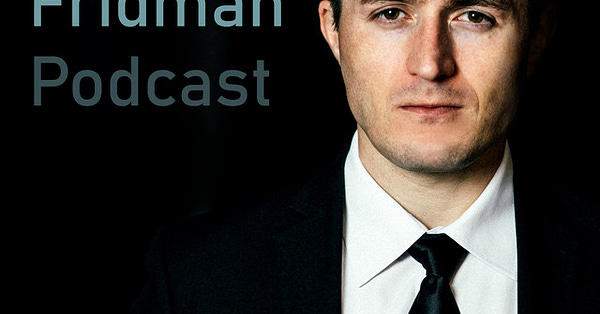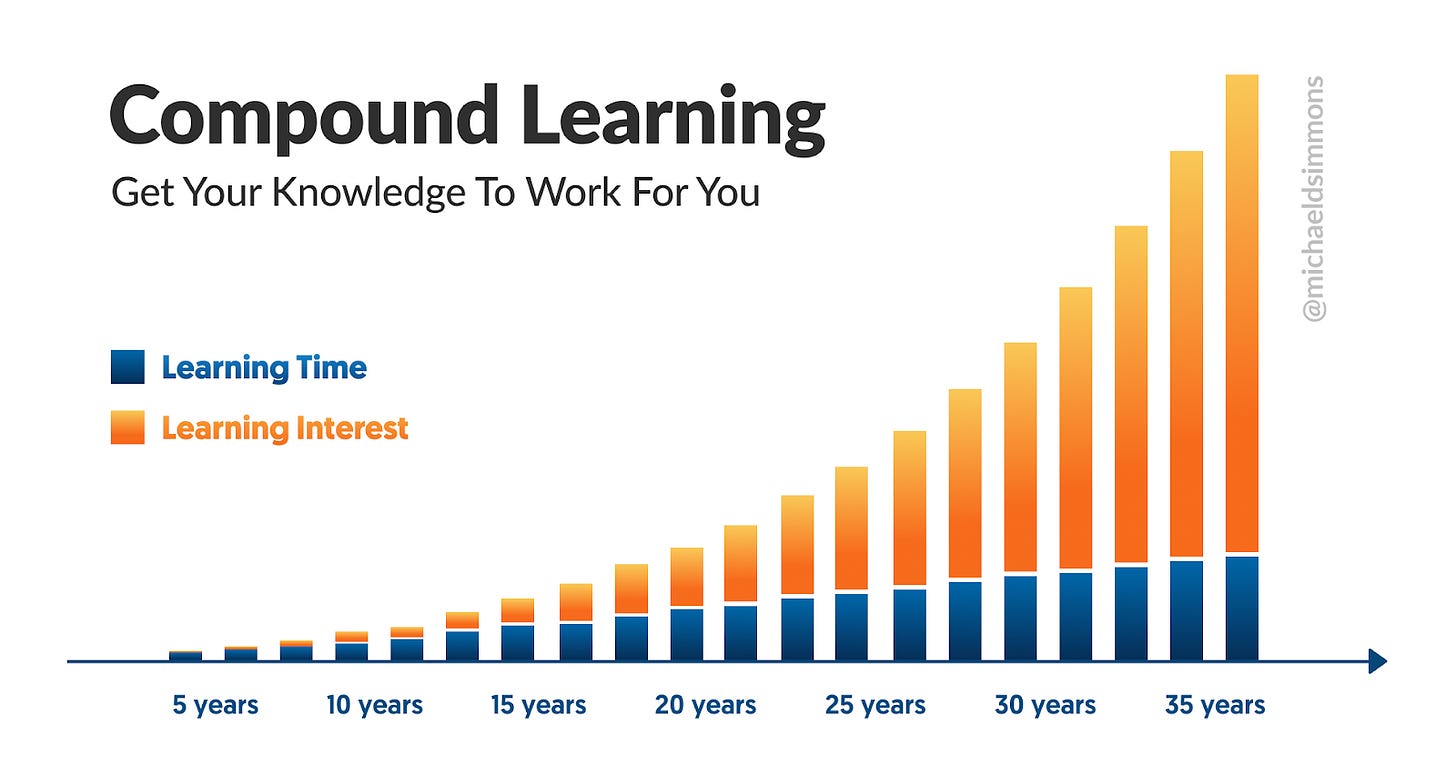
INTRODUCTION
March 28, 2021
Hey everyone—I’m so glad to have you here. What a week.
These days it seems all the things we thought were relatively risk free (Bonds! Cash! Massive Cargo Ships Moving Through Global Supply Channels!) have merely been hiding their risks behind a veil of stability. Part of this is simply due to the random and unpredictable nature of life, but also the cascading knock-on effects in an increasingly networked world.
One year ago a virus caused the republic-based U.S. government to bungle an attempt at copying the lockdown measures of Communist-based China, leading to business shutdowns and subsequent unemployment, sparking top-down money printing, lower interest rates, rent forgiveness, and universal basic income (“stimulus checks”), the latter of which were quickly spent by people to take on leverage and buy stocks & crypto at record rates, leading to huge liquidation events after options contracts expire, pulling entire markets down in the process and sparking ever more agitation and uncertainty about putting money anywhere or taking any chances at all, resulting in what is now agreed to be a potentially more lethal public health crisis than the one it attempted to mitigate.
So much for risk avoidance.
“A nurturing instinct and appreciation for natural growth requires some risk and uncertainty, which fosters innovation. Top-down dirigisme and monopolies are inherently risk-averse and prefer predictability.”
—Matthew Ridley, The Rational Optimist
My own views toward risk have evolved over time.
I now focus more on risk management than risk avoidance, a discipline that adds subtle factors to consider such as moral hazard, stochasticity, and game theory
I think about decisions more in terms of risk-and-reward rather than good-and-bad, which is a shift from simple binary thinking toward a spectrum of gradations and tolerances
I’ve learned that not doing something is a form of risk in itself. We are constantly at risk, so attempts at risk avoidance is a futile strategy at best. You can only ever trade one risk for another.
Avoiding ruin and protecting the downside is just one half of the equation. Being overly careful prevents you from being exposed to the upside of outsized returns. Risks must be taken and one must speculate on the future for there to be any hope of a net positive result once the future arrives. Progress is the dividend paid to society by those who are making repeated attempts at being less wrong over time.
“Few people feel the same about risk every day of their lives. As we grow older, wiser, richer, or poorer, our perception of what risk is and our aversion to taking risk will shift, sometimes in one direction, sometimes in the other. Investors as a group also alter their views about risk, causing significant changes in how they value the future streams of earnings that they expect stocks and long-term bonds to provide.”
—Peter L. Bernstein
So the next time someone describes something as risky, consider what “risk-free” alternative they’re comparing it to and consider how that might actually another form of risk masquerading as predictability.
What’s comfortable is not always the best bet.
“If you want to be successful and live a long, stimulating life, keep yourself at risk intellectually all the time.”
—Byron Wien
[Source: 20 Life Lessons from Byron Wien That Will Make You a Better Person]
Until next time 🤙,
“When you want to know how things really work, study them when they're coming apart.” —William Gibson
Breaking 🌊
🚢 Ongoing Suez Canal blockage sends ripples through global supply chains
🏫 Edtech company Coursera could be valued at more than $5B in its upcoming public debut, more than double its private valuation
₿💱 You can now buy a Tesla with Bitcoin, which the company plans to retain and not convert to fiat currency; Microsoft just launched their identity platform on the Bitcoin network; Federal Reserve Chairman called Bitcoin “a substitute for gold”; Fidelity filed for SEC approval of a Bitcoin ETF, and Chicago Board Options Exchange thinks its time to take Bitcoin ETFs seriously; Avanti closes $37 million Series A to launch a crypto first bank; Former Comptroller of the Currency under Trump suggests the Fed and Treasury are viewing Bitcoin as inevitable; Time Magazine’s job description for Chief Financial Officer lists “comfort with Bitcoin and crypto” as a qualification; Sovereign wealth funds—the investment arms of cash-rich nations—are looking to invest in Bitcoin; the New Zealand Pension Fund announced a $17.5 million bitcoin investment in October
From The Tweetbox 🐦
Is the Fed really trapped? … yup.
One way Roblox makes money: they pay developers in Robux and convert them to cash at a much lower exchange rate than when developers purchase the Robux. ( 👈 Great thread)
Lots of contrarianism is actually cynicism. Lots of patience is actually stubbornness.
“to be 'viable,' livable, or merely practical, life must be lived as a game”
You are smart when you focus on collaborating instead of competing. Success is not a zero-sum game.


For The Pros 😎
How fighter pilots make fast and accurate decisions. (Link available to Pro subscribers)
A Chief of Staff shares his prioritization playbook. (Link available to Pro subscribers)
How to write headlines people will click, like, and share. (Link available to Pro subscribers)
The five investing powers (Link available to Pro subscribers)
The six principles of lifestyle businesses. (Link available to Pro subscribers)
Worth A Read 📃
Google Director Of Engineering: This is how fast the world will change in ten years
This piece connects the work of some of my favorite writers across a huge array of topics, exploring the key role that exponential growth has on our perception of time and progress… and what we can do about it.
The More You Know 🌈
The Zeigarnik effect: People remember details of interrupted tasks 90% better than completed tasks that went uninterrupted.
Ovsiankina effect: People tend to want to complete an interrupted action
Copywriters leverage these effects to their advantage by sprinkling in phrases like "Here's how..." and "There's more...". Those interruptive phrases usually precede important information that the writer wants the reader to pay attention to and remember.
Here’s An Idea 💡
Person A: I build landing pages for accountants
Person B: I build appointment funnels for accountants who rely heavily on referrals
See the difference?
Person B focuses on a specific problem that niche is having. This makes outreach & sales much easier. [Source]
PNGs 🖼
Bond.
James Bond.
“The beginnings of all things are small.” —Cicero
Groms 🐣
Don’t forget: all companies were startups once.
Via the Net Interest newsletter:
Citigroup burst onto the burgeoning Manhattan scene in 1812 (Citi Never Sleeps); Goldman Sachs in 1869 (Reinventing Goldman Sachs). German banks Deutsche and Commerz were set up in 1870 to help the German economy catch up with its more industrialised rivals (The German Bank Paradox). Case studies from the recent past include Visa, founded in 1958 (Dee Hock, the Father of Fintech) and ETrade, founded in 1982 (Party Like It’s 1999: From ETrade to eToro).
Pods & Schools 🐬🐠
🔊 Sanjay Ayer - The Example of Self Awareness:
“If you want to have success, positively spring load your starting conditions."
🔊 Katherine Boyle on Innovation and Independent Thinking
Great conversation, and she pointed out an underappreciated aspect of drop-in audio app Clubhouse that makes it the perfect product-market fit for mothers locked down during the pandemic: Hands free! (Here’s a brief snapshot of the cottage industry already growing around Clubhouse)
Tools of the Trade ⚒
Products I use to make money
Swan. I recently became an official Swan partner because I love them so much. So if you're like me and just want an easy, automated way to buy bitcoin on the regular with the lowest fees in the game, head to https://swanbitcoin.com/Mulvey. You even get $10 for free ✨
StockCharts. I easily make back the small monthly subscription fee with the superpowers it gives me.
Carrd. I use card for all my landing page needs. Use this link or referral code 892PYX69 to start your own web empire.
Disclaimer
Nothing in this email is intended to serve as financial advice. Do your own research.






